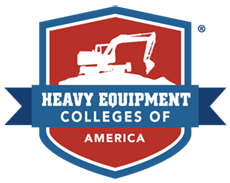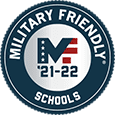More than 200,000 people leave the U.S. military every year, returning to civilian life. Many consider their service time well spent but many more of them struggle with the transition, and developing a career after the military can be a challenge. Service members should take full advantage of veteran training programs, such as machinery schools, which can help them build or enhance their skills in preparation for a successful transition. There are many options open to veterans, and some of the most in-demand career fields include construction and heavy equipment operations.
Job Outlook
According to the Bureau of Labor Statistics, heavy equipment operators make a good median salary average of close to $50,000 annually. This job area is expected to grow faster than the average for all occupations due to increased government spending on infrastructure. It is projected to increase by a full 10 percent between 2018 and 2028. Those with the skills to operate various types of equipment will be the most in-demand workers for a variety of projects. In addition to construction, heavy equipment operators can find employment in industries such as railroads, oil and gas, recycling, and garbage disposal. That makes heavy equipment training for veterans a great pathway to success.
Types of Equipment
The Occupational Safety and Health Administration mandates that employers ensure machine operators are properly trained, licensed, and evaluated before getting behind the controls. Some types of heavy equipment you can master include:
• Bulldozers
• Dump Trucks
• Forklifts
• Graders
• Skid Steers
• Water Trucks
• Graders
• Backhoes
• Boom Cranes
Depending on the industry, you may find yourself working on some exciting projects, including roads, bridges, airports, and a variety of structures, as well as in mining. Plus, while it’s true that the construction industry faces fluctuations in demand due to seasonal restriction and economic conditions, mastery of heavy equipment broadens your skill base and makes you a more valuable employee. Your training can help you retain a job in times when other workers are laid off.
Work Environment
For anyone who has served in the military, getting used to a civilian working environment can be a type of culture shock, especially for those who find employment in a white-collar job or factory job. Working in construction as a heavy equipment operator means you won’t be stuck behind a desk, cubicle, or station in a production line. You can expect a typical job to include:
• Moving heavy objects into places, such as stones, blocks, or underground pipes of concrete.
• Excavation of sub-structures such as basements and supportive frameworks.
• Maneuvering dump trucks for loading and unloading of earth and other materials.
• Operating pavers and other road-building machines.
• Cleaning, maintenance, and minor repairs of machinery.
Attending a school with a heavy equipment program for service members can give you options for working outdoors in a role that is both challenging and exciting. You’ll also enjoy a sense of satisfaction that comes from contributing to creating new structures that will be used by any number of people.
Choose a Career
For those who want a career, not just a job, a heavy equipment operator school can open a range of possibilities. Along with becoming a supervisor or construction manager, you may choose to become a contractor and run your own business or even work as a consultant. With sought-after skills in heavy machinery, the door is open to working on projects all over the world, so if you did not get to travel as a member of the military, you can quench your wanderlust through construction opportunities.
A well-rounded school curriculum will teach you much more than how to operate machinery. Training can include construction site preparation, landscaping, utility and underground excavation, residential construction, commercial construction, and more.
Additional skills that you can add to your toolbox include how to read blueprints, evaluate soil conditions, and calculate volumes and weights. These types of foundational skills give you a solid base for building a long and rewarding career.
Think Ahead
No matter what type of job you had in the military, your skills may not transfer directly into a civilian environment. To ease your transition, it’s never too early to start thinking ahead. Here are some important steps you can and should take in advance.
• Ask about VA benefits, which can include home loans, health care, education, and job training benefits.
• Enroll in your military branch’s transition assistance program, which can boost your interview and resume skills and help you with job searches.
• Get your paperwork in order, such as letters of recommendation from supervisors and any certifications you have earned.
• Create a LinkedIn profile and start crafting a resume that fits your future career field.
Think about the next steps and what you can do ahead of time, such as researching career options. You need to consider what skills, training, and education you’ll need to enter your chosen field.
Assess Your Skills
If you find yourself wondering where in the world to start, or think that none of your military skills apply, don’t panic. You are more skilled than you realize. You have already learned and developed strong, employer-friendly attributes such as discipline, teamwork, and leadership, as well as the ability to handle stressful situations. Consider the type of jobs you performed in the service and whether you enjoyed doing some things more than others. For example, did you manage projects, organize activities, or work to maintain and repair engines or other equipment? This exercise can help you narrow your interests. In addition, take inventory of your skills with assessments such as those offered through the BLS site, ONET OnLine.
How Machinery Schools Can Help
Moving beyond the military has plenty of challenges, whether you have served for 20 years or a minimum of four years. However, it is certainly achievable when you identify your goals and lay the groundwork for success with the proper training. Heavy Equipment Colleges of America can help you build a solid foundation for a career as a heavy equipment operator. We are a Veterans Affairs-approved school with seven campuses throughout the U.S. Take a look at our programs to get started today.




